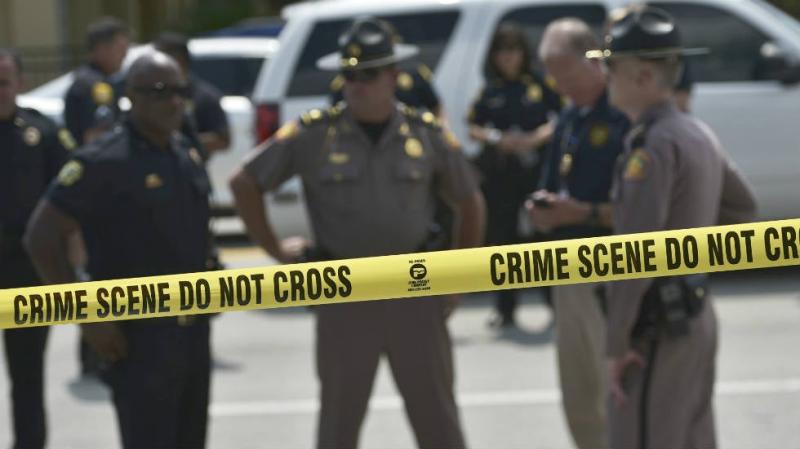How Congress made you a federal criminal
By: Liya Palagashvili and Giancarlo Canaparo (The Hill)


President 'I feel your pain' was really pretty good at spreading that pain around. Of course, these facts are far, far too inconvenient for the Big Government dear leader currently napping in the Oval Office. We'll have died and been resurrected more than three times before this news is seen on the MSNBC liberal line up. Unless, of course, liberals can somehow claim that Republicans made them do it.
When criminals write laws then everyone becomes a criminal. Support your local gangster by voting early and voting often. A win is a win, after all.

How many criminal laws has Congress created? Ronald Gainer, a retired Justice Department (DOJ) official who in 1982 led the first major effort to answer that question, said, "You will have died and resurrected three times" before you figure it out."
With the help of modern technology, we now have a pretty good answer — one that casts doubt on whether you can confidently call yourself a "law-abiding citizen.
In a new study, we developed an algorithm to measure the year-by-year growth in the federalization of crime. After decades of transformations to the American criminal justice system, we finally have a way to quantify the impact of Washington's takeover.
Our algorithm uses 12 carefully selected search terms to scour the United States Code's approximately 48,000 sections (spread across tens of thousands of pages) and identify which statutes create at least one crime. Today, 1,510 sections do so. The number has steadily increased, growing by 37 percent since 1994 (the earliest year made digitally available by the U.S. House of Representatives).
The sharpest increases were in 1994-1995 (12 percent) and 1995-1996 (8 percent), which account for more than half the total growth in the entire 22-year period. That says a lot about how the political environment has changed since the "tough on crime" 1990s.
Nonetheless, the number is still growing, and the question of exactly how many discrete federal crimes are "on the books" remains. Based on our sampling of various sections of the U.S. Code, we estimate that it contains 5,199 crimes.
In the Justice Department's 1982 attempt to manually count crimes, it found approximately 3,000. While our method differs, we can still estimate that between 1982 to 2019, the number of federal criminal offenses increased by 73 percent.
But since there are numerous other crimes buried in the regulations promulgated by federal regulatory agencies rather than by Congress, the true figure is much higher. Those crimes are hiding in a different (and much longer) set of books than the U.S. Code — the similarly titled "U.S. Code of Federal Regulations."
All these numbers speak to a different concern: We find that there is no single place where an American can go to learn what is a federal crime. The laws are scattered pell-mell throughout the code. Some are so vague that no reasonable person can know what they mean. In some cases, it's a federal crime to violate the laws of other countries. Other laws forbid behavior that no person exercising ordinary good judgment would ever expect to be crimes.
In "How to Become a Federal Criminal," Mike Chase illustrates a few ridiculous examples. It's a crime to make an "unreasonable" gesture to a horse in a national park. Or to sell Swiss cheese without enough holes. And don't even think about dressing up as a Postal Service carrier for Halloween.
The problem is so serious that prominent attorney Harvey Silverglate estimated that every American unknowingly commits three felonies a day. James Madison astutely said that it doesn't matter if laws are made by elected representatives if they "be so voluminous that they cannot be read."
Our study is a necessary step to getting a grip on the problem. Since it also provides the full list of federal criminal laws, it allows for a public review of every single one of them. We each have the opportunity to contemplate which "crimes" could send Americans to jail for accidents, innocent mistakes or violations that don't warrant years behind bars.
There are many other questions to answer about the federalization of crime. For example, this data can be used to explore whether one political party creates more federal crimes than the other. Or whether Congress's profligate crime making has any sort of deterrent effect on dangerous criminal behavior. Or how much it's contributed to the growth in the number of federal prisoners.
The data also provide support for the many researchers documenting decades of growth in new federal offenses and harsher punishments, such as the federal drug laws that have exploded since the DOJ's 1982 estimate.
For now, at least we can put a concrete number on the magnitude of the problem. Congress has created a system of criminal laws that no American can reasonably be expected to know and obey. Now, with better tools at its disposal, there may be hope for Congress to fix it.

Tags
Who is online
101 visitors


What is even more amazing than the number Federal crimes added to the books are the large number of real crimes that have been made legal. Too few holes in swiss cheese is a Federal crime but insider trading by Congressmen is praiseworthy.
When criminals write laws then guess what becomes legal.
When has Congress ever "fixed" a damn thing? They will simply form committees to discuss the problem. Take fact finding junkets to places that have nothing to do with the problem (think tax payer paid vacations usually, but not always, minus the family). Figure out a way for themselves to earn money from it in the form of insider trading, donations to their campaigns, free vacations to be lobbied, or the promise of a golden parachute job lobbying the very place the once worked after leaving office.
Then when both Establishment parties produce two different bills; or whomever is in control produces one after cutting the other party out, they will take their fight to the media trying to tear the country apart more.
Whatever is passed won't be paid for. Will not solve the problem, but will add a whole bunch of new problems. Will be challenged in the courts endlessly.
Yeah, it’s unjust. But it sure doesn’t keep people - prosecutors, media, politicians, regular folks - from getting all sanctimonious any time someone is charged with one of these mysterious crimes.
Not that anyone is ever charged with just one crime for a single act.
Yeah, it's an old prosecutor trick called "Bootstrapping" charge as many offences on a certain set of circumstances as they can to jack up the chance of getting something on a "Plea Deal"...
You really wanna break the justice system? EVERYONE plead not guilty and make no plea deals... Right now it could take as much as 18 months for a case to come to trial, longer than two years in some cases... But this is accomplished just about automatically now a days.. when they do the arraignment and enter the plea, they also enter an order waiving a speedy trial.... (yeah that pesky thing the constitution guarantees) It is automatic that such an order gets entered in EVERY CASE... Which means you can be held as long as it takes for them to come to trial..
There is no such thing as speedy justice in this country anymore and basic constitutional guarantees are circumvented each and every day...